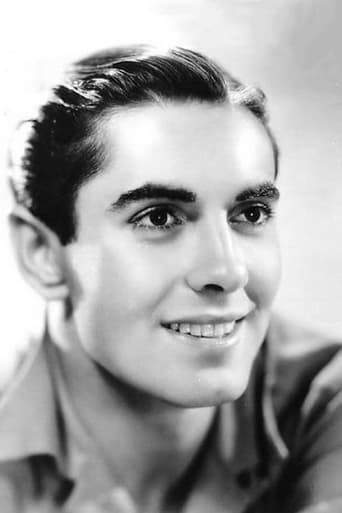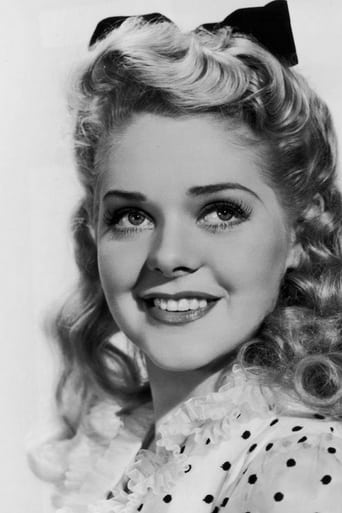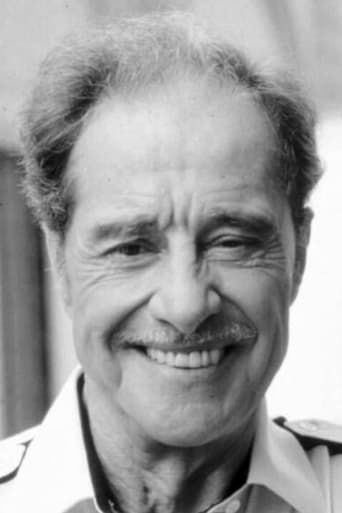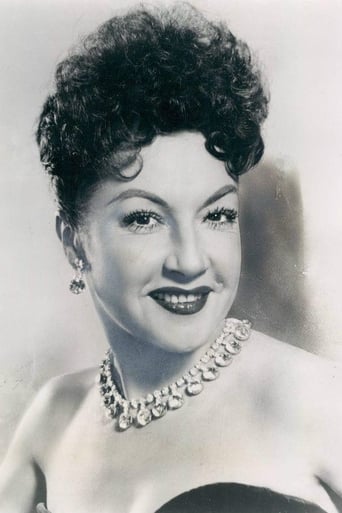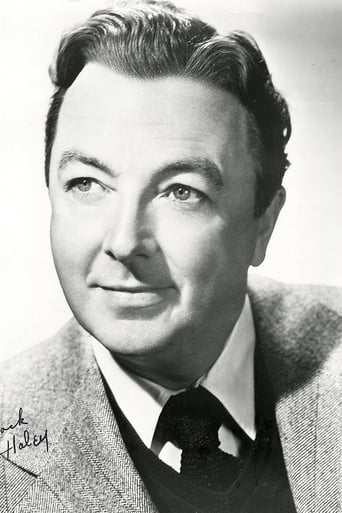Kattiera Nana
I think this is a new genre that they're all sort of working their way through it and haven't got all the kinks worked out yet but it's a genre that works for me.
BootDigest
Such a frustrating disappointment
Platicsco
Good story, Not enough for a whole film
Pacionsbo
Absolutely Fantastic
vincentlynch-moonoi
For 1938, this was a dream cast! First and foremost is Alice Faye, I'm not sure what there was about Faye. She had a deep throaty voice, and not really a classic one. But, she could put over certain songs, and "Alexander's Ragtime Band" was one of them. On the other hand, she doesn't put over "Now It Can be Told", a key song when Ameche realizes Power has fallen in love with Faye. Then there's Tyrone Power at his young, most handsome best as "Alexander". And the trio is complete with the wonderful Don Ameche, sans mustache for much of the film. In supporting roles are Ethel Merman, the great Jack Haley, and the beloved Jean Hersholt.And what makes the film complete is the music of Irving Berlin, including the title song, "Heat Wave", "Some Sunny Day", "Blue Skies", "Easter Parade", "A Pretty Girl Is Like a Melody", and others. Added in are some pretty nifty old-time vaudeville-type numbers.There are some nice historical touches, as well. For example, San Francisco's old Cliff House.The plot is generally good, if somewhat predictable. Faye and Alexander meet up quite by accident when both are trying to get their start in a low class beer hall. Love develops, but then the leads break up and Alexander goes into the Army (I found this segment a little less interesting than the rest of the film, although it does provide Jack Haley with a good number, as well as a good production number; but I suppose Hollywood was gearing up for our entry in WWII, so looking back to WWI was a fine technique to do so). Of course, a slightly wounded Alexander returns after the war, but meanwhile Faye has married Ameche and is a hit on Broadway. Alexander teams up with a restrained Ethel Merman and is playing in Greenwich Village. But Ameche and Faye end their marriage amiably, Merman delivers a swell version of "Blue Skies", followed by a less impressive version by Faye. That leads to a sort of musical montage of Berlin numbers where Faye and Merman seem to be rivals; I'm not quite sure this segment works really well, but it certainly highlights Berlin's songs. And then there's the concert at Carnegie Hall which adds even more of Berlin's songs, including a wonderful version of "Heat Wave" by Merman. And then a great ending with the reprise of Faye singing "Alexander's Ragtime Band".If you have the DVD version, among the special features are three numbers deleted from the film -- a nice version of "Some Sunny Day" by Don Ameche, "In My Harem" by Jack Haley (very entertaining), and "Marching Along With Time" with Ethel Merman. The quality of these clips is not quite a perfect as the film, but certainly very watchable, although it's not quite so clear why these numbers were cut.Generally speaking, 20th Century Fox didn't produce musicals that were of the caliber being made by MGM, but sometimes the stories at 20th were actually better. This is one such case.Not a perfect film, but highly entertaining and highly recommended.
gkeith_1
Tyrone Power gorgeous, and scrumptious, etc. Alice Faye with her wonderful, throaty voice, is always a reminder of her signature voice range. A youngish Ethel Merman was a surprise to see here, and a wonder that they kept her to the second part of the movie. Don Ameche is just gorgeous, too.Jack Haley a fabulous dancer, and I know that the next year he performed as the Tin Woodman in "Wizard of Oz", also an ensemble picture like this one.I really liked the constant barrage of songs written by Irving Berlin. That boy was really a prolific composer.Power was good as an actor when his character went to World War I, later coming home with a changed demeanor and denying that his walking cane was from any war injury. He seemed to be more serious than before. In the beginning of the movie, he was a classical music performer who later lightened up and began playing the newly-popular pre-war ragtime music.I did enjoy seeing Alice Faye and Ethel Merman singing together toward the end of the movie. This was a treat that I do not recall seeing in any other movie. Their low and higher voices actually complemented each other. That they were each interested in the same man did not seem to really matter.In this movie, Ethel was not as recognizable as in later movies in which she would appear, full-figured, in such song-belting movies as "There's No Business Like Show Business" and "Call Me Madam". She was great in those movies, as well as this one, however.I do enjoy seeing this movie, over and over again. I see different nuances every time.
Lechuguilla
For viewers who like Irving Berlin music, this is a film to watch. His songs are really the main attraction. But the story, which encompasses a group of musicians and their career changes, has an interesting series of romantic plot twists that is intriguing.The main character is Roger (Tyrone Power), a man who starts his career in a highbrow musical setting, but changes to more popular ragtime. The story is fictional, but Roger's character arc is inspired by the life of Irving Berlin.A big-budget film that was in production for almost two years, "Alexander's Ragtime Band" received a huge promotional build-up in 1938. And it was well received by audiences. Sets are lavish. B&W cinematography is competent. Casting and acting are acceptable overall. However, Tyrone Power is the only major actor who lacks musical talent, and it shows. Both Don Ameche and Jack Haley add luster. Alice Faye is adequate.The film is less constricted by plot than other musicals. But there's still a lot of dialogue. And, except for the title song and a quick version of "Easter Parade", the music is somewhat bland and uninteresting. I would have preferred more evocative music. The film's tone ranges from semi-bawdy to mushy romanticism.This is a large-scale, Americana period piece film, with an accent on the music of Irving Berlin. It is old fashioned, both in plot and in style. It's technically well made. But to me it's too removed in time from current culture to be anything other than historically quaint.
Mike-764
Roger Grant, a classically trained violinist, is leading a small band in turn of the century San Francisco with little success. One fateful night, Stella Kirby, brings sheet music of Irving Berlin's new song, Alexander's Ragtime Band. Stella sings while Roger plays the song, and all three are a hit, despite the friction between Roger (who now is the Alexander from the song) and Stella. Obviously there is hints of romance between the two, but fellow band member Charlie Dwyer completes the love triangle, and is the one who captures Stella's hand in marriage. Roger/Alexander and his band tour the country and entertain the troops overseas in World War I, and returns to the US a sensation, while the marriage between Stella and Charlie falls apart because the two realize they are not the ones meant for each other. Stella tries to rekindle the romance with Roger, but singer Jerry Allen has fallen for the band leader, despite being somewhat indifferent towards her. Roger, Charlie, and the rest of the band perform a concert reuniting everyone, while Stella feels on the outside thinking she has no part in Roger's life. The film's story line is predictable, full of holes, and mushy and the performances are enjoyable at best, but the film carries such an energy thanks to Berlin's music, as well as the singing from both Faye and Merman (who does stand out in this early role). The musical numbers are quite different from the ones preceding it, which does keep the movie fresh. Rating, 7.

